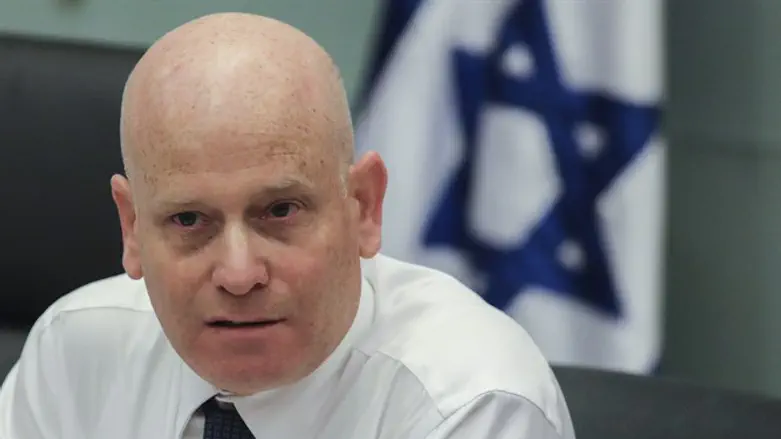
Knesset legal advisor Eyal Yinon on Sunday distributed a legal opinion to Knesset members explaining why the current “Camera Law”, which allows representatives of parties to film the goings on at the voting ballots, does not meet the constitutional test.
This unconstitutionality stems, among other things, from providing a very significant advantage to one party over other parties, from a real fear of deterring voters, from chaos in the polling stations, and other aspects detailed in the legal opinion, all while the issue of maintaining electoral purity receives an unprecedented response in a series of measures which the Central Elections Committee plans to take as soon as the next election day.
In addition, at the procedural level, the legal advisor notes that the promotion of a legislative procedure about a week before the elections, which was not widely upon agreed between the factions and which deals with election-related legislation, is unprecedented and in itself presents significant difficulties.
The legal opinion was released hours after Cabinet ministers unanimously approved the Camera Law, which is now expected to pass through the legislative process in the Knesset.
At the opening of the cabinet meeting, Netanyahu said, "Today we are submitting for Cabinet approval the law on cameras in polling places. The integrity of elections is among the foundations of democracy. The best way to prevent fraud in the elections is to station cameras in every polling place and allow poll watchers from the rival parties to supervise each other. Reciprocal oversight of all the parties is the essence of transparency in a democracy and one of the most important foundations in upholding the rule of law. Therefore, cameras in polling places in the hands of poll watchers are a necessary means to assist in maintaining the integrity of the elections."
"I would like to emphasize here: The draft legislation determines that the cameras will document what goes on in the polling place hall and not voting behind the screen. The secrecy of the vote will be strictly maintained. In 2013, Judge Elyakim Rubinstein, who then chaired the Central Elections Committee, said: ‘It is necessary to think about cameras' – and regarding the recent elections, Judge Melcer, who then chaired the Central Elections Committee, said that the phenomenon of fraud is a real problem. Therefore, problems must be resolved, and elections problems must be resolved before the elections. When should this be resolved? After the elections?
"No special preparations, training or equipment is necessary. Any poll watcher can film with his cellphone. This is what happens in our public space: Everyone photographs, everything is an Instagram story, every grocery has cameras, then the hall at the polling place cannot be photographed? Cameras in polling places for the integrity of the elections – it is simple, it is fair, it is transparent and it is just.
"One cannot explain why photography is restricted precisely in the only public place where transparency is required more than any other. We will submit the issue for legislation in order to ensure that the coming elections will be clean, supervised and exact, just as the citizens of Israel expect from us.”
Attorney General Dr. Avichai Mandelblit made clear to the ministers at the Cabinet meeting that his opposition to the Camera Law is not an opposition in principle to the placing of cameras at the polling stations.
"I never said I was against cameras. I thought the law was good," Mandelblit told the ministers in response to allegations made against him in recent days.
"But after reading the opinion of the chair of the Central Elections Committee that it would cause irregularities on election day, I opposed the law," Mandelblit added, explaining, "I'm in favor of cameras, but you have to know how to do it."

